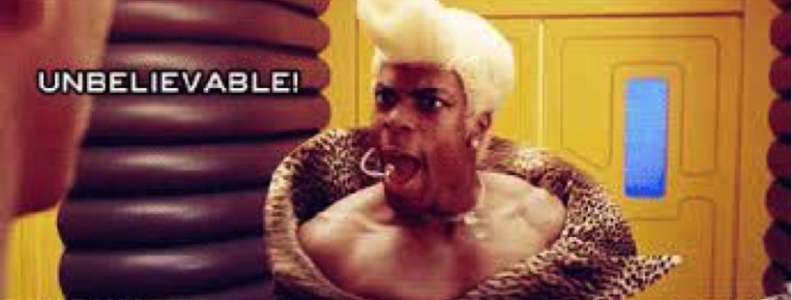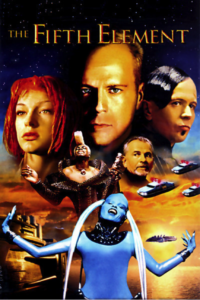“Come in, — come in! and know me better, man!” -Charles Dickens, A Christmas Carol
We’d love for you, our wonderful readers, to get to know us better. That’s why, each month, Kristin Luna will interview a member of The Fictorians. We’ll learn more about each member, such as their writing processes, their work, where they live, and what they prefer to drink on a warm summer’s day. We hope you enjoy this monthly installment of Meet the Fictorians.
Meet the Fictorians:
Kevin Ikenberry

Kristin Luna (KL): Hi Kevin! How are you doing, and what are you drinking?
Kevin Ikenberry (KI): The snow seems to have finally left Colorado behind, so I’m doing very well. As for the drinking thing, lots and lots of water. Living over a mile above sea level (around 6800ft) requires constant hydration, which I offset occasionally with a cold adult beverage.
KL: Colorado is great! Do you take advantage of all the hiking as Kevin J. Anderson does? What do you like to do when you’re not writing?
KI: KJA is a hiking machine! My family likes to hike, though with a little one we don’t hit the challenging treks very often, but we still get out in the sun and fresh air. When I’m not writing, I like to be active – I’m an avid golfer and I enjoy swimming and exercising. There’s nothing better than a nice evening walk with my family, though.
KL: You have a military background. Can you tell us about that, and how it fits into your writing?
KI: I served just under 24 years as a commissioned officer in the Army until my medical retirement in March. I survived a necrotizing fasciitis infection but my ability to do the hard, physical requirements of the Army was compromised. I served as an Armor officer (tanks and cavalry) and later in my career as a Space Operations officer. Military service has a ton of unique experiences and good “there I was” stories that can easily find their way into fiction and bring a huge amount of realism.
In a way, my military service led to my writing. In 2009, I was teaching ROTC and I started making notes for a story that I realized was going to be a novel. Being on a college campus, I went back and took Creative Writing and started writing for publication as a result. There’s a lot more to that story, but being in uniform for more than half of my life made an impact on me and as I began to write, my military experiences came through.
KL: Speaking of those notes for your first novel, tell us a little more about Sleeper Protocol.
KI: Sleeper Protocol was my debut novel and it was published in early January from Red Adept Publishing. This was originally a longish short story that my writing group encouraged me to develop a bit more. It became a 40,000 word novel, then a 75,000 word novel before there was an epiphany that changed the story completely.
Sleeper Protocol is the story of a man, cloned from our time, who awakens three hundred years in the future in a wheelchair overlooking Sydney Harbor. He is given one year to determine his identity through experiences or he will be euthanized. What he knows could save Earth from a coming war. Whether he believes the future is worth saving is another matter.
Sleeper Protocol is a military character study set against a partially dystopian setting with a touch of psychological thriller. A friend of mine said it was “military science fiction without being typical military science fiction.” I believe he’s right. Originally, Sleeper Protocol was going to be a standalone novel. However, my editor called me one day and asked a very simple question that has already bred a sequel and will make this a series of likely four books.
KL: My dad’s going to be very happy to hear that! He’s already read Sleeper Protocol and adored it. I see Runs in the Family just came out in January of this year. Is that a stand alone or will that be a series?
KI: Runs In The Family is a military science fiction novel set in the same universe as Sleeper Protocol, except about twenty-five years earlier during The Great War. The story follows a young woman who receives a memory imprint from a long-dead ancestor who is a near perfect genetic match. She goes to war, falls in love, and is forced to make very tough choices along the way. This will be an ongoing series, though I have scrapped the original outlines for books two and three. I’m working right now on a revised outline for book two and am very happy with where this particular story is going.
KL: What are you working on now? Anything coming out that we can look forward to?
KI: I recently contracted the prequel novel for Runs In The Family with Strigidae Publishing and we’ll be starting edits later this summer. Right now, I’m tidying up the sequel to Sleeper Protocol (working title Vendetta Protocol). My beta readers have sent it back with solid feedback and loved it, so I’m hopeful to turn that in to my publisher mid-summer.
KL: Now for a very important question. Dogs or cats or neither?
KI: We have two cats, Charlize and Binx. Charlize is a sleepy, sweet black and white ball of fur. Binx is a black cat who is cuddly and wants attention. If we could get them to stop fighting, it would be great. I’ve always been a dog person, but it’s been years since I’ve had one. Our cats are good with our kids, so we’ll stay with two pets for now. A dog may enter the picture in a few years, who knows?
KL: What’s the best writing advice you’ve received to date?
KI: That you, as a writer, are responsible for the contract that you sign. I received a contract on Sleeper Protocol from a small press before it sold to Red Adept. Because the contract was not something I felt comfortable signing, and the publisher would not negotiate at all, I walked away. Given the success of both Sleeper Protocol and Runs In The Family, I believe I made the right decision and I still scrutinize every contract (short story or novel) that comes my way.
KL: What advice would you give a new writer?
KI: Seeking the advice and counsel of mentors. When I started writing with the intent of getting published, the best thing I did was to find mentors and learn from them. All of us writers, funnily enough, like to share and teach. We want to see others avoid the mistakes we made and help in any way we can. My mentors have been phenomenal in my growth as a writer and as a person. That’s something I want to continue in any way that I can.
KL: I know you’re new to the Fictorians, but what has been your favorite post so far that you’ve written?
KI: A couple of years ago, I was asked to guest post on Fictorians about my stranger than fiction illness and recovery. It’s probably the best, more coherent, telling of the story. You can find the story here: http://www.fictorians.com/2014/09/15/based-on-a-true-story-2/
***
If you have any questions for Kevin, please leave a comment below. Thank you for reading!





 Last summer, I got psyched up about Netflix’s new series, Sense8. I had no idea what it was about—I hadn’t even seen a trailer—but it had J. Michael Straczynki and the Wachowskis at the helm, and that was enough for me to give it a shot. I stayed up until 2:00 a.m., waiting for the show to appear in my Netflix queue. I was strangely drawn to the fact that the cast was mostly composed of people I hadn’t heard of before. After all, when I see Matt Damon onscreen playing a character, I have trouble seeing the character; I see Matt Damon onscreen playing a character. Know what I mean?
Last summer, I got psyched up about Netflix’s new series, Sense8. I had no idea what it was about—I hadn’t even seen a trailer—but it had J. Michael Straczynki and the Wachowskis at the helm, and that was enough for me to give it a shot. I stayed up until 2:00 a.m., waiting for the show to appear in my Netflix queue. I was strangely drawn to the fact that the cast was mostly composed of people I hadn’t heard of before. After all, when I see Matt Damon onscreen playing a character, I have trouble seeing the character; I see Matt Damon onscreen playing a character. Know what I mean? Evan Braun is an author and editor who has been writing books for more than ten years. He is the author of The Watchers Chronicle, a completed trilogy. In addition to writing science fiction, he is the managing editor of The Niverville Citizen. He lives in Niverville, Manitoba.
Evan Braun is an author and editor who has been writing books for more than ten years. He is the author of The Watchers Chronicle, a completed trilogy. In addition to writing science fiction, he is the managing editor of The Niverville Citizen. He lives in Niverville, Manitoba.